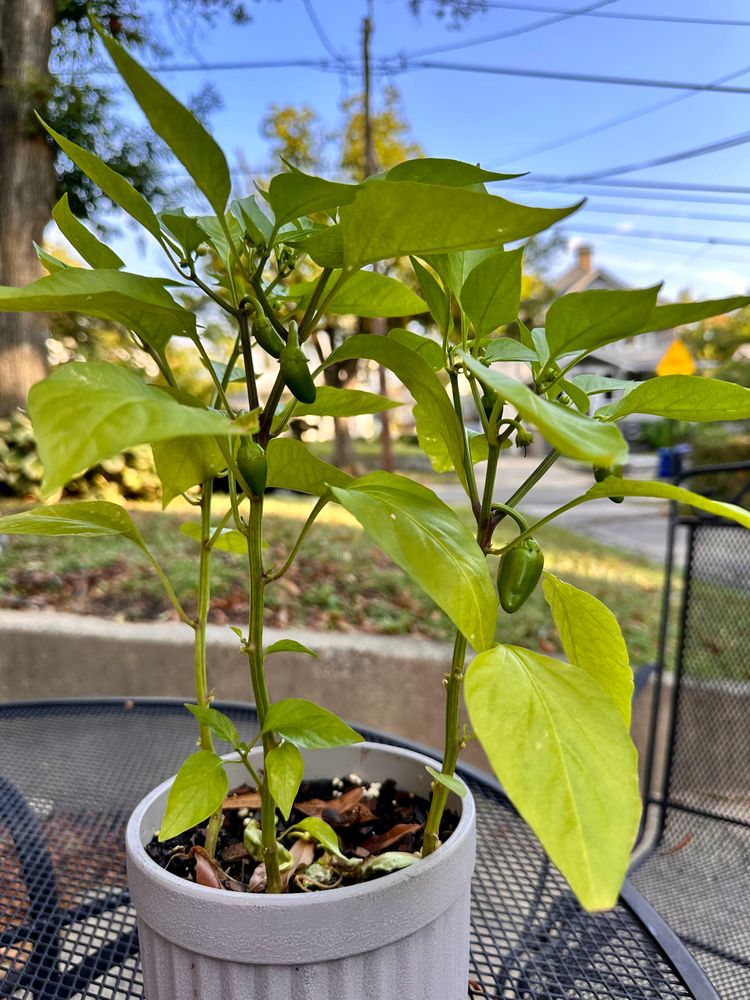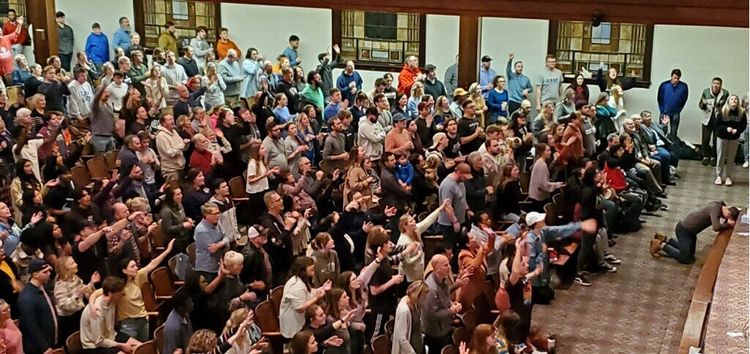Grandma Henkler's Funeral
Death and funerals are a time when grief and gratitude mingle. Grief because of loss; gratitude because we recognize how deep that loss is.
I want to begin by naming our gratitude. Mary Henkler, grandma to me and my siblings and cousins, mom, sister, aunt, friend to you, she lived nearly four eight hundred weeks.
She spent nearly all of them, more than 3,000 of them, being your mom, Dad and Aunt June. About a thousand or so of those weeks she spent caring for you while you lived under her care. And you spent over a thousand caring for her, under your care, in the twilight of her life.
She’s spent over 2,000 weeks being a grandma. All of her 4,800 weeks as a sister. Nearly all of them as a Round Robin and friend.
Each of those weeks represents her actions and choices that led to this moment, this gathering. This time when we come together, and we remember and swap stories and laugh and cry. We give thanks for her because of who she was and what she did.
I spent about 6 of my birthdays living under her roof in her and George’s condo in Florida. I got to receive firsthand her cantankerous generosity. A form of cranky-kindness that she nailed so perfectly.
What I’m grateful for, for grandma, is her enduring patience and faithfulness. It takes a lot of patience to thoroughly de-bone a Thanksgiving turkey, as I remember her doing year after year. It takes a lot of patience to enjoy hummingbirds, who appear only fleetingly when they dang well please. It takes a lot of patience to love a husband through cancer and another through consistent heart troubles. It takes a lot of patience to love your children for 70 years, your grandchildren for 40, your friends and family for some amount of those 4,800 weeks.
I pause here—just for a moment—to wonder aloud, how will we spend our 4,800 weeks, or how many weeks we each have left? I hope that we choose ways that lead to someone else’s gratitude.
Anyway, this is all to say that it is all that gratitude that leads to such profound grief.
Grief is love and gratitude that has no place to go. The receiver of our gratitude is no longer here to receive it.
As one writer[1] put it:
“We took them too much for granted. Perhaps we all take each other too much for granted. The routines of life distract us; our own pursuits make us oblivious; our anxieties and sorrows, unmindful. The beauties of the familiar go unremarked. We do not treasure each other enough.
“She was a gift to us for so many years. When the gift was finally snatched away, I realized how great it was. Then I could not tell them.
“How can I be thankful, in their gone-ness, for what they were? I find I am. But the pain of the no more outweighs the gratitude of the once was.
“I didn’t know how much I loved her until she was gone.”
If someone ever tells you that grief is not proper, that it is not what faithful, upright people do, you can go ahead and tell them they are stupid. A pastor told you to do it.
We grieve because something has happened that is not right.
We grieve because death is an aberration to what God intends for creation. We grieve because death rips gaping holes into what ought to be. Death and loss remove those we love, both young and old, and then is brazen enough to ask us to continue on.
We grieve because, for Jesus' followers, it is the example set up for us by Christ our example. Christians follow a God who wept at the tomb of a friend, who was often moved with compassion and pity and groaned within himself, a God who knelt in a garden, and begged that his own death would not be his fate.
Grief is the right and proper response to death and loss. It is the acknowledgment that death—even the death of a 91-year-old woman who lived a full life—that death is an enemy to life.
Now, I’m not really here to convince anyone of anything, but what I can do is report Christians have historically believed that death too shall die. It is, as Paul says, the last enemy to be defeated. Death will be swallowed up by life.
The great hope of Christians is not that we go to heaven when we die, though I believe that to be true. But that is not the end of the story. Rather, what Jesus taught and preached is that the kingdom of heaven is coming to earth. That earth’s fate, ultimately, is not to be destroyed but re-created. That the abode of God, heaven itself, will make its way to earth.
The fate of people is not to be disembodied souls floating on clouds. But rather to resemble our Savior. To have bodies resurrected, remade, restored, recreated, bodies that are incorruptible, free of decay.
Therefore our gratitude and our grief are also tinged with hope. Hope that this is not the end of our story with Grandma, with Mom, with Mary. Hope that one day tombs will be empty, sons and daughters will be joyfully reunited with fathers and mothers. And hope that forty-eight hundred weeks will become forty-eight hundred and one.
Nicolas Wolterstorff ↩︎



Member discussion